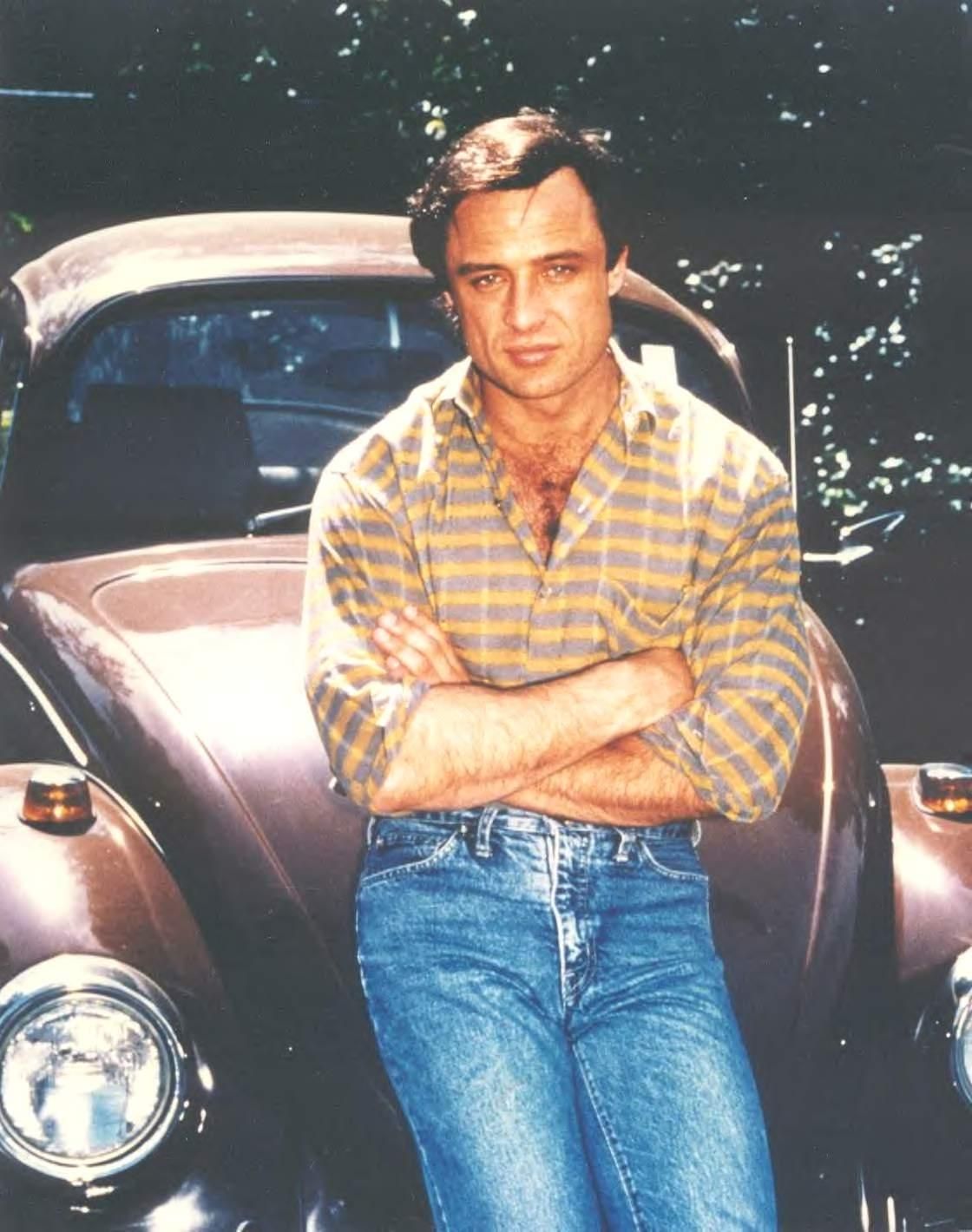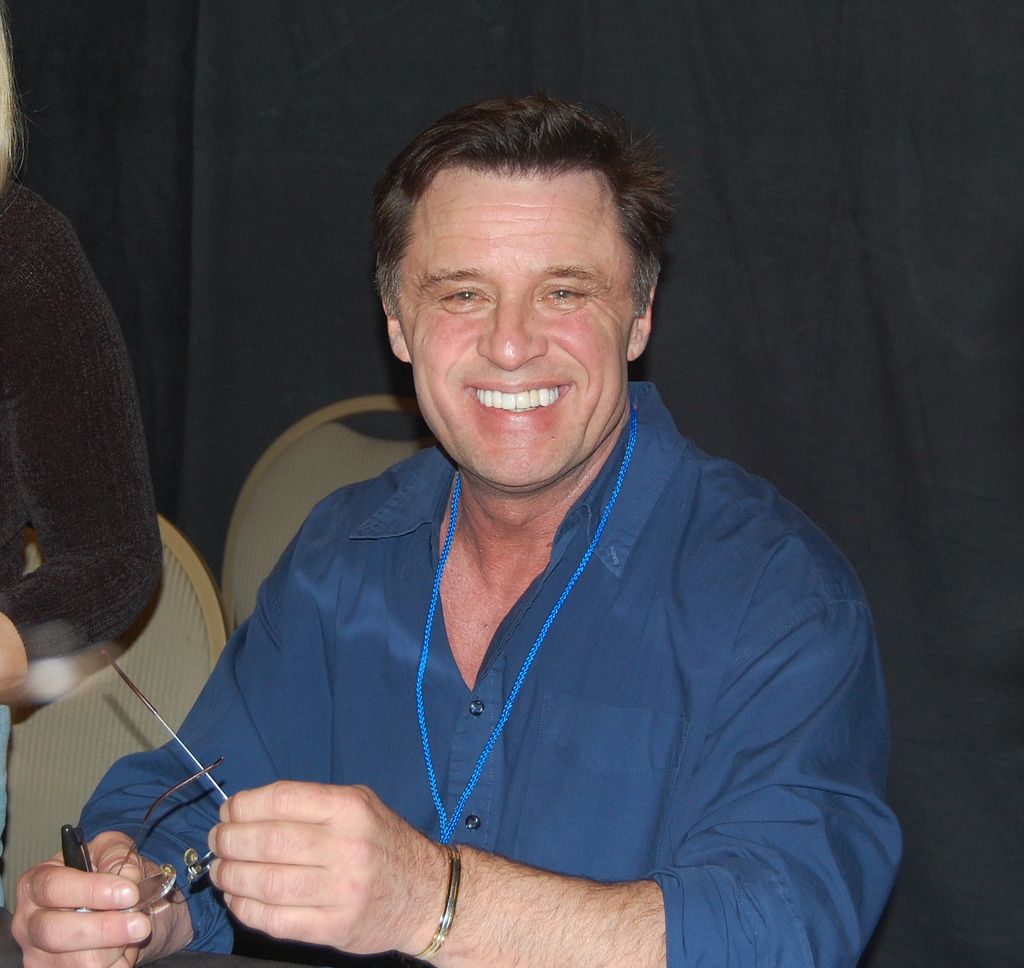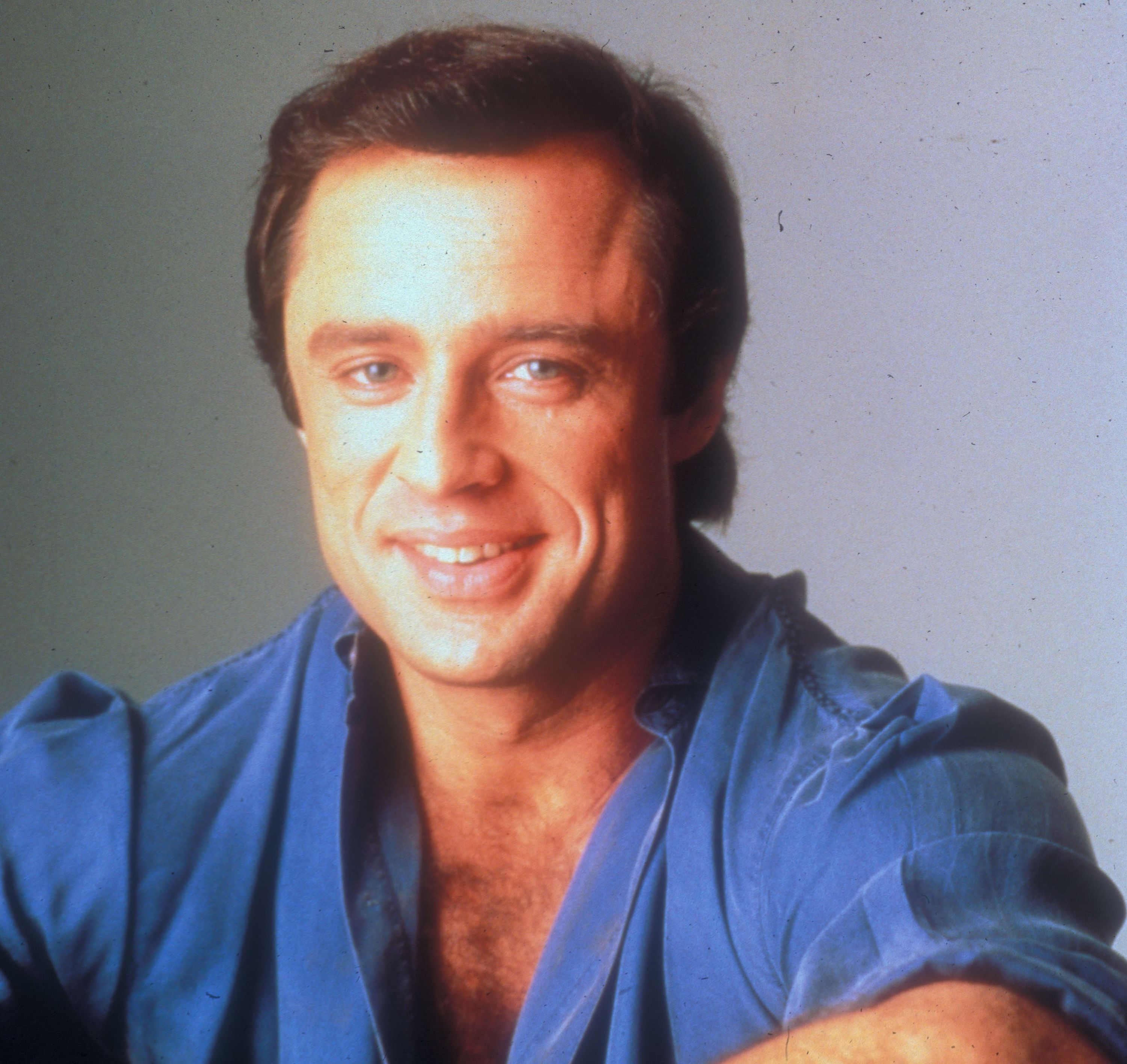Joe Penny: Unraveling The Enduring Appeal Of A Television Icon
In the vast tapestry of American television, certain faces become synonymous with an era, their performances etched into the collective memory of viewers. One such enduring figure is Joe Penny, an actor whose presence graced screens for decades, captivating audiences with his nuanced portrayals and distinctive charm. From his early roles to his most iconic characters, Penny built a career marked by consistency and a quiet intensity that set him apart. His work, particularly in the realm of crime dramas, defined a significant portion of 80s and 90s television, leaving an indelible mark on the landscape of episodic storytelling.
For many, the mention of Joe Penny immediately conjures images of sharp suits, a thoughtful gaze, and the intricate dance of justice unfolding on screen. While the entertainment industry is often characterized by fleeting fame, Penny's career stands as a testament to longevity and the power of compelling character work. This article delves into the remarkable journey of Joe Penny, exploring the roles that defined him, the impact he had on the genre, and why his contributions continue to resonate with fans old and new, long after the cameras stopped rolling on some of his most beloved series.
Table of Contents
- Joe Penny: A Biographical Sketch
- Early Life and Initial Steps into Acting
- The Breakthrough Role: Jake and the Fatman
- The Chemistry with William Conrad
- Joe Penny's Diverse Filmography
- Notable Guest Appearances and TV Movies
- Beyond the Screen: Joe Penny's Personal Life
- Joe Penny's Enduring Legacy in Television
- Impact on the Crime Drama Genre
- The Evolution of Television Crime Dramas and Joe Penny's Place
- The Challenges and Triumphs of a Long Career
- Where is Joe Penny Now?
- Conclusion
Joe Penny: A Biographical Sketch
Born Joseph Edward Penny on June 24, 1956, in London, England, Joe Penny's early life saw him move across continents before settling in the United States. His unique background, straddling both British and American cultures, perhaps contributed to the nuanced depth he often brought to his characters. From a young age, Penny exhibited an interest in performance, a path that would eventually lead him to Hollywood and a prolific career in television.
Early Life and Initial Steps into Acting
Penny's journey into acting wasn't an overnight sensation but rather a gradual ascent marked by dedication and a willingness to hone his craft. He began his career in the late 1970s, taking on various guest roles in popular television series of the era. These early appearances, though often brief, allowed him to gain invaluable experience and showcase his nascent talent. He appeared in shows like The Hardy Boys/Nancy Drew Mysteries, CHiPs, and Lou Grant, steadily building a resume that hinted at his potential for more substantial roles. It was during this period that Joe Penny began to cultivate the quiet intensity and understated charisma that would later become his signature.
His early work was characterized by a versatility that allowed him to slip into different types of characters, from troubled youths to budding professionals. This foundational period was crucial in shaping him into the seasoned actor audiences would come to know and appreciate. It was a time of learning the ropes, understanding the rhythm of television production, and making connections within the industry that would prove vital for his future success.
Joe Penny: Personal Data & Biodata
| Full Name | Joseph Edward Penny |
| Date of Birth | June 24, 1956 |
| Place of Birth | London, England |
| Nationality | British-American |
| Occupation | Actor |
| Years Active | 1977 - Present |
| Spouse | Cindy Penny |
The Breakthrough Role: Jake and the Fatman
While Joe Penny had accumulated a respectable list of credits by the mid-1980s, it was his casting in the CBS crime drama Jake and the Fatman that truly launched him into widespread recognition. The series, which premiered in 1987, saw Penny star as Jake Styles, a sharp, street-smart investigator, working alongside the formidable William Conrad as prosecutor J. L. "Fatman" McCabe. The show quickly became a staple of late 80s and early 90s television, running for five seasons and captivating millions of viewers.
Jake Styles was the quintessential cool, collected private investigator, often seen in stylish suits, driving classic cars, and navigating the sun-drenched landscapes of Los Angeles (and later, Hawaii). His character provided a stark yet complementary contrast to Conrad's more gruff, cerebral Fatman. The dynamic between the two, a blend of professional respect and father-son-like banter, was the cornerstone of the show's appeal. Penny's portrayal of Jake was marked by a quiet confidence and a subtle wit, making him an instant heartthrob and a reliable hero for viewers.
The series, known for its intricate plots and picturesque settings, allowed Joe Penny to showcase his dramatic range, handling everything from tense interrogations to lighthearted moments. It was a role that perfectly leveraged his natural charisma and ability to convey depth without excessive dialogue. For many fans, Jake and the Fatman remains the defining role of Joe Penny's career, a testament to his ability to embody a character that resonated deeply with the audience.
The Chemistry with William Conrad
The success of Jake and the Fatman was undeniably amplified by the incredible on-screen chemistry between Joe Penny and William Conrad. Conrad, a veteran actor with a commanding presence, brought gravitas and a certain paternal warmth to the role of Fatman McCabe. Penny, as the younger, more action-oriented Jake, provided the perfect foil. Their interactions were often the highlight of each episode, whether they were debating legal strategies, sharing a meal, or simply exchanging knowing glances.
This synergistic relationship elevated the show beyond a typical crime procedural. It gave it heart and a relatable human element that kept viewers invested. The dynamic between the methodical, experienced prosecutor and the intuitive, street-smart investigator was a classic trope, but Penny and Conrad executed it with a freshness and authenticity that made it their own. It's a prime example of how the right casting and genuine rapport between lead actors can turn a good show into a beloved classic.
Joe Penny's Diverse Filmography
While Jake and the Fatman cemented his status, Joe Penny's career extends far beyond that single iconic role. He has amassed an impressive and diverse filmography, demonstrating his versatility across various genres and formats. From early television movies to guest spots on hit series, Penny consistently delivered compelling performances.
Before his breakthrough, he appeared in numerous TV films, often playing leading men or complex supporting characters. These included roles in productions like The Seeding of Sarah Burns (1979), The Girls of the White Orchid (1983), and The Kindred (1987). These roles allowed him to explore different facets of his acting abilities, from romance to suspense, and to work with a wide array of talented actors and directors.
Post-Jake and the Fatman, Penny continued to be a sought-after actor, particularly for television movies and recurring roles. He often appeared in thrillers and dramas, showcasing his ability to portray characters with hidden depths or those facing moral dilemmas. His consistent presence on television screens for over four decades speaks volumes about his enduring appeal and the respect he garnered within the industry.
Notable Guest Appearances and TV Movies
Throughout his career, Joe Penny made a significant impact through his guest appearances on a multitude of popular television series. These roles, though sometimes brief, often left a lasting impression due to his distinct acting style. He graced shows like Touched by an Angel, Diagnosis: Murder (reuniting with Dick Van Dyke, who also appeared in Diagnosis: Murder), and Walker, Texas Ranger. Each appearance showcased his ability to seamlessly integrate into established casts and deliver memorable performances, whether as a sympathetic figure or a formidable antagonist.
Beyond episodic television, Penny continued to be a prominent figure in made-for-television movies, a format that was highly popular in the 1990s and early 2000s. Films like The Danger of Love: The Carolyn Warmus Story (1992), where he played the lead detective, and Terror in the Night (1994) allowed him to tackle more intricate narratives and character arcs over a longer format than a typical TV episode. These roles further solidified his reputation as a reliable and compelling actor, capable of carrying a production and drawing in viewers with his understated yet powerful performances. His consistent work in this medium demonstrated his adaptability and enduring relevance in a constantly evolving entertainment landscape.
Beyond the Screen: Joe Penny's Personal Life
Despite his public profession, Joe Penny has largely maintained a private personal life, a characteristic that sets him apart from many of his contemporaries in the entertainment industry. He has generally shied away from the intense media scrutiny that often accompanies celebrity, preferring to keep details about his family and private affairs out of the spotlight. This deliberate choice has allowed him to focus on his craft and live a life away from the constant glare of paparazzi and tabloid headlines.
Penny is married to Cindy Penny, and their relationship has been a quiet constant in his life. While specific details about their life together are not widely publicized, their long-standing marriage suggests a stable and supportive personal foundation, which is often crucial for navigating the demanding nature of an acting career. This discretion has contributed to his image as a grounded and professional individual, respected for his work rather than for any sensationalized personal narratives.
His approach to privacy is a testament to a different era of celebrity, where the focus was more squarely on the performance and less on the personal lives of actors. This reserved demeanor has arguably contributed to the enduring respect he commands from both his peers and his audience, allowing his professional achievements to speak for themselves.
Joe Penny's Enduring Legacy in Television
The impact of Joe Penny on television is not merely measured by the number of roles he played but by the quality and lasting impression of those performances. He carved out a niche for himself in the crime drama genre, a space where his particular brand of calm intensity and intelligent portrayal truly shined. His characters often possessed a quiet strength, a moral compass, and a relatable humanity that resonated deeply with audiences.
His legacy is particularly strong in the realm of procedural dramas. He contributed significantly to the golden age of network television, where shows like Jake and the Fatman were appointment viewing for millions. Penny's ability to create believable, nuanced characters within the framework of episodic storytelling helped elevate the genre, proving that even within formulaic structures, compelling performances could captivate and hold an audience's attention for years.
Furthermore, his consistency across decades, from the late 70s through the 2000s and beyond, speaks to his adaptability and the timeless quality of his acting. He never relied on flashy theatrics but rather on a genuine understanding of his characters, making them feel real and accessible. This commitment to authenticity is a significant part of his enduring legacy.
Impact on the Crime Drama Genre
Joe Penny's influence on the crime drama genre is undeniable, particularly through his portrayal of Jake Styles. In an era when crime shows were transitioning from gritty realism to more character-driven narratives, Penny's Jake Styles offered a blend of both. He was a sharp investigator, capable of handling dangerous situations, but also a sophisticated individual with a dry wit and a clear moral code.
His character, alongside William Conrad's Fatman, helped popularize the "buddy cop" or "unlikely duo" dynamic that became a hallmark of many successful crime series. Their relationship showcased that intellectual prowess and street smarts could coexist and complement each other in the pursuit of justice. Penny's contribution helped set a standard for the portrayal of intelligent, capable, yet relatable protagonists in crime fiction. He demonstrated that a hero didn't always need to be overtly tough; sometimes, quiet intelligence and a steady hand were far more compelling.
The Evolution of Television Crime Dramas and Joe Penny's Place
The landscape of television crime dramas has undergone significant evolution since Joe Penny first started his career. From the more straightforward narratives of the 1970s to the complex, serialized storytelling of today, the genre has constantly adapted. Penny's career spans much of this transformation, and his roles reflect the changing tastes and production values of the industry.
In the 1980s, when Jake and the Fatman aired, crime dramas often balanced procedural elements with character development, offering a blend of standalone cases and ongoing personal storylines. Penny's work fit perfectly into this model, providing a consistent, appealing character around whom various weekly mysteries could unfold. His performances helped solidify the appeal of shows that offered both intellectual puzzles and engaging human drama.
As television moved into the 1990s and 2000s, with the rise of cable and more specialized networks, crime dramas became more diverse, ranging from gritty, realistic portrayals to highly stylized productions. Joe Penny continued to find work, often in roles that capitalized on his established persona as a reliable, authoritative figure, whether as a detective, a lawyer, or a man of quiet integrity. His longevity in the industry is a testament to his ability to adapt without losing the core qualities that made him a beloved actor.
The Challenges and Triumphs of a Long Career
A career spanning over four decades in the notoriously fickle entertainment industry is a triumph in itself. Joe Penny's journey has undoubtedly involved its share of challenges, from the constant competition for roles to the evolving demands of the medium. Yet, he has navigated these waters with remarkable resilience and consistency.
One of the significant triumphs of his career is his ability to remain relevant and consistently employed without succumbing to the pressures of sensationalism or typecasting. While he excelled in crime dramas, he also took on roles that allowed him to stretch his acting muscles, demonstrating a range that went beyond just one genre. His longevity can be attributed to his professionalism, his undeniable talent, and his understated approach to fame.
Unlike some actors who experience a meteoric rise followed by a sharp decline, Joe Penny's career has been more akin to a steady, reliable flame. He built a reputation as a dependable actor, someone who could always deliver a solid performance, making him a valuable asset to any production. This steady presence, rather than fleeting superstardom, is perhaps the greatest triumph of his long and distinguished career.
Where is Joe Penny Now?
In recent years, Joe Penny has maintained a less prominent public profile, a continuation of his preference for privacy. While he is not as regularly seen in major network productions as he once was, he has continued to take on select acting roles, often in independent films or guest appearances in television series. His work has shifted somewhat from the high-profile network dramas of his peak to more niche projects, allowing him to choose roles that genuinely interest him.
Fans eager to see Joe Penny on screen might find him in various reunion specials or independent features that occasionally surface. He remains a respected figure within the acting community, a testament to his professionalism and the quality of his past work. While he may not be in the daily limelight, his legacy as a compelling and consistent actor endures, and his past performances continue to be enjoyed by new generations of viewers discovering classic television.
Conclusion
Joe Penny's career is a compelling narrative of quiet dedication, consistent talent, and enduring appeal in the demanding world of television. From his early guest spots to his iconic role as Jake Styles in Jake and the Fatman, Penny carved out a significant place for himself in the hearts of viewers and the history of crime dramas. His ability to portray intelligent, nuanced characters with a subtle yet powerful presence made him a standout figure for decades.
His impact on the genre, his remarkable longevity, and his steadfast commitment to his craft, all while maintaining a dignified private life, paint a picture of an actor who prioritized substance over spectacle. Joe Penny's contributions to television continue to resonate, reminding us of a time when character-driven storytelling and compelling performances were paramount. We invite you to share your favorite Joe Penny memory or role in the comments below. What character of his left the biggest impression on you? And if you enjoyed this deep dive into the career of a television legend, be sure to explore other articles on our site celebrating the enduring figures of classic TV.
- Masahub New
- Sophie Raiin Spider Man
- Jackerman Mothers Warmth
- Camilla Araujo Onlyfans Videos
- Emily Carriveau Divorce Filing

Pictures of Joe Penny

Pictures of Joe Penny

Pictures of Joe Penny